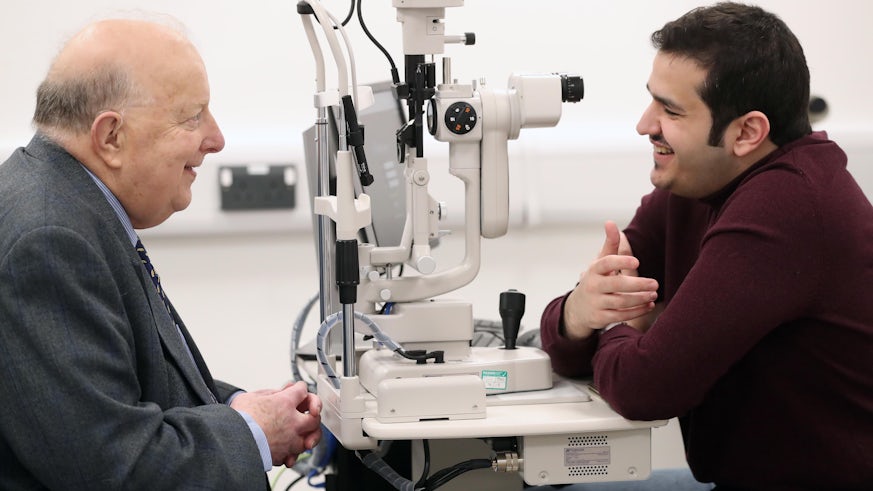Major funding secured to assess the role of community optometry in monitoring eye disease
4 Chwefror 2021

A collaborative study to investigate the value of monitoring people with long standing eye conditions in the community, rather than in hospitals, has secured a significant research grant from Health and Care Research Wales (HCRW).
The study, led by Professor Barbara Ryan, aims to reduce mounting pressure on the hospital eye service which has recorded the highest number of outpatient episodes of any speciality in the NHS since 2017.
Traditionally, patients with long standing eye conditions, such as Age-Related Macular Degeneration and Glaucoma, are monitored by hospital optometrists (eye care professionals). However, with further training and qualifications, it is widely agreed that the majority of monitoring can be done by community optometrists, who would normally provide eye examination services.
Professor Ryan, who is also an optometrist who practices in Aneurin Bevan Health Board, explained that “a number of novel approaches to managing the transformation of optometry services into the community has already been developed across the UK.
However, due to a lack of evidence to support the best approach, including agreeing on what services are provided and where, community monitoring varies considerably across the region.
This study, will therefore aim to better inform decisions taken at health board and Welsh government level.”
Professor Rachel North, a professor at Cardiff University who is part of the research team went on to explain that “the ‘value’ of transferring services in this context will not only be financial costs but a patient centred focus on the right management in the right place at the right time”.
The project is sponsored by Aneurin Bevan University Health Board and has representatives from across eyecare, health economics and patient benefit groups. This includes primary care (Optometry Wales), secondary care (Welsh Hospital Ophthalmology Departments), academic support from three major South Wales Universities (Cardiff, Swansea and South Wales). Further collaboration also comes from patient partners including Sight Cymru, the Macular Society, International Glaucoma Association, and the Wales Council for the blind.